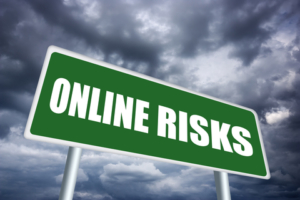For Immediate Release:
Dateline: Boston,
MA
Wednesday, November 18, 2015
Every time you have a medical procedure done, including routine checkups and treatment for minor issues, paperwork is generated. You should have copies of every single paper. This is one line of defense against medical identity theft.  Review your paperwork thoroughly for unauthorized or duplicate charges, mistakes with diagnoses, dates, names, anything that looks odd. Signs of medical identity theft include: Review your paperwork thoroughly for unauthorized or duplicate charges, mistakes with diagnoses, dates, names, anything that looks odd. Signs of medical identity theft include:
- Being billed for treatment or diagnostics you never received.
- Being told you’ve maxed out your coverage limit when you haven’t.
- A collection agency claiming you owe a debt that you don’t owe.
- Being denied coverage for a “pre-existing” condition that you don’t have.
- Paperwork showing you saw a doctor you never did or were prescribed a drug you never were is a red flag.
- An e-mail from your provider that requests you reveal sensitive information like your Medicare number is a big red flag. The subject line may be urgent, such as “Your Medical Coverage May Be Terminated.” Never click links inside these e-mails or fill out forms in them; instead contact your provider via phone. However, e-mails like these are scams; the thief knows if he sends 50,000 such e-mails out with his special software, a predictable percentage of recipients will “see” themselves in the message.
- A one-ring phone call may be a thief who just obtained your medical records to see if your number is legitimate. Never call back.
Be Vigilant - If you suspect medical identity theft, keep strict records of all associated correspondence.
- Immediately obtain all records if you already haven’t, including the “accounting of disclosures”; you have this legal right, even if you get flack from the provider. Contact the provider’s patient representative or ombudsman for assistance.
- If you spot mistakes, even small, insist they be corrected.
Nevertheless, it’s usually not easy to detect medical ID theft. So let’s look at this in more detail: - If a collection agency contacts you, request they provide information immediately; promptly contact your provider and carrier.
- Examine your credit report to see if it’s plummeted due to unpaid medical bills. The three major credit reporting agencies issue the reports free.
- If your provider offers online access to your files, sign up for this service, then inspect it for mistakes.
- Request records of imaging procedures.
- If no online access is available, have your doctor read the results or send a snail mail copy.
Robert Siciliano is an identity theft expert to BestIDTheftCompanys.com discussing identity theft prevention. About the Author
ROBERT SICILIANO, CEO of IDTheftSecurity.com is fiercely committed to informing, educating, and empowering Americans so they can be protected from violence and crime in the physical and virtual worlds. His "tell it like it is" style is sought after by major media outlets, executives in the C-Suite of leading corporations, meeting planners, and community leaders to get the straight talk they need to stay safe in a world in which physical and virtual crime is commonplace. Siciliano is accessible, real, professional, and ready to weigh in and comment at a moment's notice on breaking news. Similar Posts- Medical Identity Theft Can be Deadly
If you feel like you are starting to get the flu, going to the doctor’s office can get you some medicine and get you on the road to recovery. But, there’s no pill or surgery that can protect you from medical identity theft—which can kill you. Literally. The thief who steals your identity doesn’t mean - Medical Identity Theft Protection And Prevention
Identity theft can be fatal to the victim — if it’s of the medical kind. Medical ID theft can result in getting the wrong blood type during a transfusion, the wrong diagnosis or the wrong prescription — all because the thief’s medical history gets integrated with the victim’s. I hope you’re scared, because that’s my goal. Up - 1.5 Million Americans Have Been Victims of Medical Identity
Robert Siciliano Identity Theft Expert The Smartcard Alliance has released an in-depth report called “Medical Identity Theft in Healthcare.” While identity theft is a global issue that garners much media attention, most do not realize that medical identity theft is a serious and growing threat. Many authorities consider medical identity theft one of the fastest growing - Medical Identity Theft: Ins and Outs
Medical identity theft is the deadliest form of identity theft—and I say this without hyperbole or exaggeration. When financial gain is the general motivation for stealing medical information, insurance cards, records, etc., the crime is a form of account takeover fraud. Medical identity theft—the real kind—occurs when the thief’s motivation is obtaining medical procedures or - What are Consumer Reports?
You’ve heard the term “consumer report.” Many times, I’m sure. But do you really know what one is? If you’re nodding your head, would you be able to explain it to a Martian? If not, then you probably do not have a solid understanding of what one is. But lenders, landlords, creditors, employers and insurers certainly
|